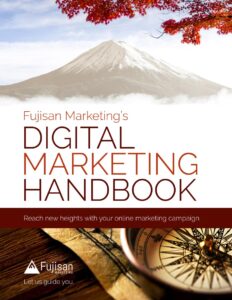When it comes to developing your SEO strategy, there are 2 distinct things you should keep in mind – E-A-T and YMYL. E-A-T stands for expertise, authority, trust, and is one of the main ways Google gauges your credibility in your niche’s ecosystem. YMYL stands for “Your Money or Your Life,” which may or may not apply to your business. More on this below.
Let’s start with E-A-T, which stands for:
Expertise refers specifically to the creator of the article (or blog post, video, etc.). Basically speaking, if you are writing about a topic, you want to make sure the writer for sure knows what they are talking about. If you have a recipe blog, you don’t have to be a James Beard award-winning chef, but you do have to know what you are talking about.
Authority is naturally related to expertise, and refers to whether said creator is considered — as the name suggests — an authority in the field by other experts and peers. It’s a bit more ambiguous, but if your content is well-founded in legitimate research and agreed upon by the vast majority of experts, then it could generally be considered authoritative.
Trust is the most straightforward: Has the author and their site proven themselves to be a trustworthy source of information?
YMYL, meanwhile, is a descriptor for a type of site that deals with others’ health, financial security, safety, happiness, or general wellbeing. Rather than explaining it ourselves, why not let Google explain it for us? Here’s a screenshot taken from the full guidelines.
Screenshot of Google’s YMYL guidelines
In other words, if your site has the ability to directly impact someone’s quality of life, you need to be extra careful with your content. You’ll need to work extra hard with your site to make sure it complies with E – A – T. If you don’t, you’ll find yourself at a significant disadvantage against those who have taken the proper steps. More on what those steps are below.
Why does all this matter for your site?
Well, beyond it being important from the whole “having a sense of civic duty” standpoint, you also have your own site’s performance as an incentive for considering E-A-T in your content. (Sidenote: Is anyone else getting hungry from this blog?)
Fact is, E-A-T is one of the most important factors in page quality ratings for search engines; Google rates sites on a scale of super high to super low. In order to be highly-ranked on the search engine results page, you want to be on the higher side of the page quality rating. Interestingly, E-A-T has been an important part of SEO for years, but has significantly increased in value since COVID-19 started.
Their system’s goal is to weed out sites that are harming their users, whether actively or just passively. This could be something blatantly harmful, such as defrauding site visitors of money or personal information, or something innocuous that we in normal language wouldn’t describe as “harmful” — like a site spamming users with excessive display ads that make navigating their site and reading their work unreasonably difficult.
E-A-T is even more important if your site falls under the YMYL umbrella. This should be self-explanatory, but if your site could be considered YMYL, you need to take the work you produce much more seriously; a site dedicated to personal finance decisions obviously has the potential to affect its users — positively or negatively — more than a site that consists mostly of quizzes about which Hogwarts house you’d be in based on your preferred hot dog toppings, and so on.
Using this to properly implement on-site strategy
All this should remain in the back of your head when publishing anything to your site (or site-affiliated platforms like a YouTube channel or Facebook page).
There’s three specific things to remember:
- Every page should have an identifiable purpose. In other words, why should someone want to read this? What will they take away from it? How will this help them?
- Each page, article, paper, and so on should be supported by appropriate expertise. A cyber-security PhD would be a fantastic author or citation for a piece on keeping safe online — but just because they’re an expert on that topic doesn’t mean they’re qualified to tell users about, for example, how to lose weight with a Keto diet.
- Related to this, you should be transparent about authorship and, where applicable, sources. Cite them! And for authors, having a clear byline on articles helps legitimize your content. Even better if you create author pages with applicable credentials and a compilation of their articles on your site.
- Lastly, if your content is YMYL, you should always prioritize having the highest expertise, authority, and level of trust possible. And even if you’re not YMYL, you should try to have the highest E-A-T possible — Google will subsequently rank your site higher plus visitors will have a much more positive experience, meaning they’ll both spend longer on your site and be more likely to return. This in turn will make Google rank your site even higher, bringing in more traffic, who will stay longer and return, which will make Google rank you higher, and so on.
While E-A-T and YMYL can seem kind of silly as acronyms, they’re really just important reminders about what should be the backbone of the work you publish online. Making sure your content is trustworthy and valuable means you’re both helping others and getting rewarded on Google for it. It’s a win-win!






